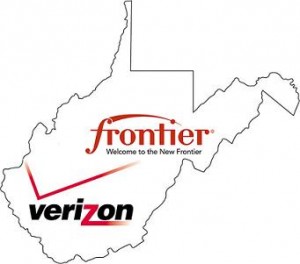 A British financial analyst has issued a new report telling phone companies they should forget about fiber optic upgrades — copper-based DSL service is adequate for consumers and doesn’t bring shareholders fits over capital expenditures.
A British financial analyst has issued a new report telling phone companies they should forget about fiber optic upgrades — copper-based DSL service is adequate for consumers and doesn’t bring shareholders fits over capital expenditures.
Analysys Mason’s Rupert Wood believes companies are at risk of overspending on fiber networks that deliver speeds he claims few consumers want.
“The vague promise of future services may appeal to some early FTTH adopters, but will become increasingly ineffective as a selling point unless the rate of innovation in devices and services that are uniquely suitable for FTTH gets some new impetus from vendors and service providers,” writes Wood. “The future cannot be simply plotted against increasing fixed-line bandwidth.”
Wood believes wireless 3G and 4G broadband is where innovation and demand is greatest. It also just happens to be where the biggest money can be made. Providers can charge premium prices for wireless services while limiting access.
For at-home Internet, Wood believes copper-based DSL is fine for most consumers. Wood points to American providers offering super-high-speed broadband tiers that attracts few buyers as proof there is little interest in ultra-fast connections. DSL is cheap to provide, he argues. Fiber is just ‘too risky’ and Wood suggests it’s not as “future-proof” as wireless.
So what should providers do with their fiber networks? Short of abandoning them altogether, Wood recommends operators pull back on fiber roll-outs and deploy them only for experimental purposes.
“Conditions vary between markets, but in general the business case to move much beyond trials just isn’t there and we are already beginning to see some scale-back,” explains Wood.
“Bandwidth demand for fixed broadband is converging with the bandwidth required to stream TV, and its rate of growth will slow down,” he adds. “DSL [technology] might not be able to meet these demands at some point in the future, but we believe that this point is still a long way off.”
If you want to read more, it will cost you €5500 to purchase a copy of “FTTx roll-out and capex in developed economies: forecasts 2010–2015.”
Our analysis comes for free.
Wood ignores the most important reason why Americans are not signing up for ultra-fast premium speed tiers in droves — the current “early adopter” price tag. Few consumers are going to justify spending $99 a month or more for the highest speed connections. When price cuts deliver faster service at incrementally higher pricing, perhaps $10-20 for each step up, there will be greater demand. If America was not interested in higher speed networks, Google’s proposal to build a 1Gbps fiber to the home system would have passed by without notice. Instead, more than 1,100 communities applied to be chosen for the project, including just about every American city.
Wood’s report primarily speaks to a European market, where the majority of broadband connections come through telephone company DSL or wireless. In the United States, the cable industry heavily competes with phone companies for broadband customers. That is much rarer in Europe. Wood’s claim that consumers care little about speed is belied by marketing campaigns that put cable broadband’s speed advantage front and center, and they have the market share to justify it.
 In North America, although Wood’s report may be music to phone companies’ ears, refusing to upgrade copper phone networks comes at their peril. Americans and Canadians are disconnecting their landlines at an increasing rate, abandoning those that abandoned innovation long ago. Cable operators report many of their new broadband customers come from those disconnecting slower speed DSL service from copper-loving phone companies.
In North America, although Wood’s report may be music to phone companies’ ears, refusing to upgrade copper phone networks comes at their peril. Americans and Canadians are disconnecting their landlines at an increasing rate, abandoning those that abandoned innovation long ago. Cable operators report many of their new broadband customers come from those disconnecting slower speed DSL service from copper-loving phone companies.
The future is clear — sticking with standard DSL over copper phone lines in competitive markets is a losing proposition unless phone companies begin slashing prices to become a value leader for those who want more savings than speed.
Verizon determined the best way to “future proof” its network was to deploy fiber straight to the home in many areas. Verizon’s vision carries a price tag analysts like Wood and those on Wall Street don’t like because it challenges short term profits. But with Americans increasingly saying goodbye to their landline providers, not upgrading networks to give customers a reason to stay is penny wise and pound foolish.


 Subscribe
Subscribe







